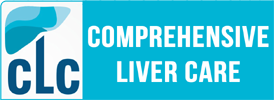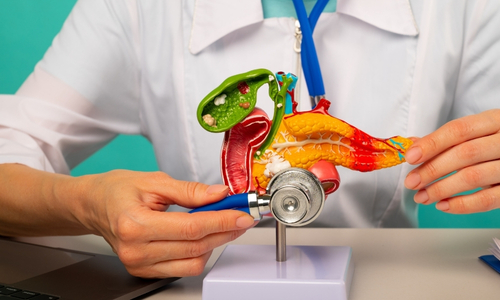In the field of gastroenterology, the gallbladder plays an important role in digestion. The gallbladder is a small organ located beneath the liver, responsible for storing bile, a digestive fluid produced by the liver that helps break down fats. Gastroenterologists, specialists in digestive health, often deal with diseases affecting the gallbladder, as problems with this organ can lead to significant health issues. These include gallstones, inflammation, and, in severe cases, the need for surgical removal. Understanding how to prevent and manage gallbladder disease is crucial for maintaining overall digestive health, and it’s a key concern within gastroenterology.
Common Types of Gallbladder Disease
Gallstones (Cholelithiasis)
Gallstones are the most common type of gallbladder disease. These are hard deposits, primarily made of cholesterol or bilirubin, that form in the gallbladder. They can block the bile ducts, leading to severe pain and complications.
Cholecystitis (Inflammation of the Gallbladder)
Cholecystitis occurs when the gallbladder becomes inflamed, often due to gallstones blocking the bile ducts. This can cause acute or chronic pain, and in severe cases, may require surgery.
Gallbladder Cancer (Rare)
Though rare, gallbladder cancer is a serious condition. Its symptoms often overlap with those of more common gallbladder diseases, making early detection difficult.
Symptoms of Gallbladder Disease
Gallbladder disease can present with a range of symptoms, which may vary depending on the type and severity of the condition. Common signs include:
- Abdominal pain: Often sharp and located in the upper right quadrant, especially after eating fatty meals.
- Nausea and vomiting: These symptoms frequently accompany the pain.
- Digestive issues: Bloating, indigestion, and heartburn are common in gallbladder disease sufferers.
Causes and Risk Factors
Diet and Lifestyle
A diet high in fat and cholesterol is a primary risk factor for gallbladder disease. This can lead to the formation of gallstones and inflammation.
Genetic Predisposition
Family history plays a role in your likelihood of developing gallbladder problems. If close relatives have had gallbladder disease, your risk may be higher.
Obesity and Metabolic Syndrome
Obesity, diabetes, and metabolic syndrome are major contributors to gallbladder disease. These conditions often affect how bile is processed in the body.
How Diet Affects the Gallbladder
Foods to Avoid
Fatty, fried, and processed foods can exacerbate gallbladder issues. Avoiding these can help reduce the risk of gallstone formation and inflammation.
Foods That Promote Gallbladder Health
Lean proteins, whole grains, and high-fiber foods are beneficial for the gallbladder. Fruits and vegetables rich in vitamins and antioxidants also support overall digestive health.
The Role of Fiber and Hydration
Fiber helps in the digestion of fats, reducing stress on the gallbladder. Hydration is equally important, as it ensures proper bile flow and prevents stone formation.
Preventing Gallbladder Disease
Preventing gallbladder disease often revolves around lifestyle choices. Here are some steps to take:
- Maintain a Healthy Weight: Obesity increases the risk of gallstones, so staying within a healthy weight range is crucial.
- Exercise Regularly: Physical activity helps improve bile circulation, reducing the chance of gallstone formation.
- Balanced Diet: A diet low in cholesterol and high in fiber can reduce the risk of gallbladder problems.
Managing Gallbladder Disease Naturally
Herbal Remedies and Supplements
Some herbs like milk thistle, turmeric, and dandelion root may support gallbladder function. However, it’s important to consult a doctor before trying any herbal remedy.
Detoxifying the Liver and Gallbladder
Detoxes that focus on the liver and gallbladder can help flush out toxins and promote better digestion. Again, medical advice is essential before starting a detox regimen.
Stress Management and Its Impact
Chronic stress can impact digestion and gallbladder function. Incorporating relaxation techniques like yoga and meditation can improve overall health and reduce flare-ups.
Medical Treatments for Gallbladder Disease
Medication Options
In some cases, medications can help dissolve gallstones or manage symptoms. Ursodiol is one such drug that helps break down cholesterol-based stones.
Non-Surgical Procedures
There are non-invasive techniques like shock wave lithotripsy, which breaks up gallstones, but these are only suitable for certain types of stones.
Surgical Removal (Cholecystectomy)
In severe cases, surgery may be the best option. A cholecystectomy is the removal of the gallbladder, and it’s a common procedure for those with recurrent or severe gallbladder disease.
Gallbladder Surgery: What to Expect
Types of Surgery
Gallbladder removal can be done via traditional open surgery or laparoscopically, which is less invasive and has a quicker recovery time.
Recovery Process
Most people recover fully within a few weeks. After surgery, the body adapts to digesting without a gallbladder, though some dietary changes may be needed.
Life After Gallbladder Removal
Most people live a normal life without a gallbladder, though they may need to avoid certain fatty foods to prevent digestive discomfort.
Complications of Untreated Gallbladder Disease
Chronic Inflammation
Ignoring gallbladder issues can lead to chronic inflammation, which can severely damage the organ over time.
Infection and Sepsis
Untreated gallstones can lead to infections, which, if left untreated, may spread into the bloodstream, causing life-threatening sepsis.
Increased Risk of Cancer
Though rare, chronic gallbladder issues can increase the risk of developing gallbladder cancer.
Gallbladder Disease and Diet After Surgery
Adjusting to Life Without a Gallbladder
After surgery, the liver will still produce bile, but it will no longer be stored in the gallbladder. Adjustments to your diet will help your body adapt.
Foods to Eat and Avoid Post-Surgery
Stick to a low-fat diet after surgery to avoid discomfort. Focus on lean proteins, whole grains, and fresh fruits and vegetables.
Lifestyle Changes to Support Gallbladder Health
To maintain gallbladder health, even after surgery, consider these long-term changes:
- Long-Term Dietary Changes: Emphasize whole, unprocessed foods that are low in fat and high in fiber.
- Regular Health Check-ups: Regular medical check-ups ensure that any potential issues are caught early.
- Importance of Staying Active: Regular exercise can keep your digestive system running smoothly, reducing your risk of gallstones.
The Role of Hydration in Gallbladder Health
Why Water Is Crucial
Proper hydration ensures the smooth flow of bile, reducing the risk of gallstone formation.
How Dehydration Can Worsen Symptoms
Dehydration can cause bile to become concentrated, leading to the formation of gallstones and increased pain.
FAQs about Gallbladder Disease
Can you live without a gallbladder?
Yes, many people live a normal life without a gallbladder. However, dietary adjustments may be needed.
Are gallbladder problems hereditary?
Genetics can play a role in the likelihood of developing gallbladder disease.
What foods trigger gallbladder attacks?
Fried, fatty, and high-cholesterol foods are common triggers for gallbladder pain.
Is gallbladder disease curable?
While gallbladder disease is manageable, surgical removal of the gallbladder is often a permanent solution to recurring problems.
How do I know if I have gallbladder disease?
If you experience frequent abdominal pain, nausea, and digestive issues, it’s essential to consult a healthcare provider for a proper diagnosis.
Conclusion
Gallbladder disease can significantly impact your health, but with the right preventive measures, such as a healthy diet, regular exercise, and stress management, you can reduce your risk. If you’re already experiencing symptoms, it’s important to seek medical advice promptly. Whether through natural remedies or medical treatments, managing gallbladder disease is possible with the right approach.

